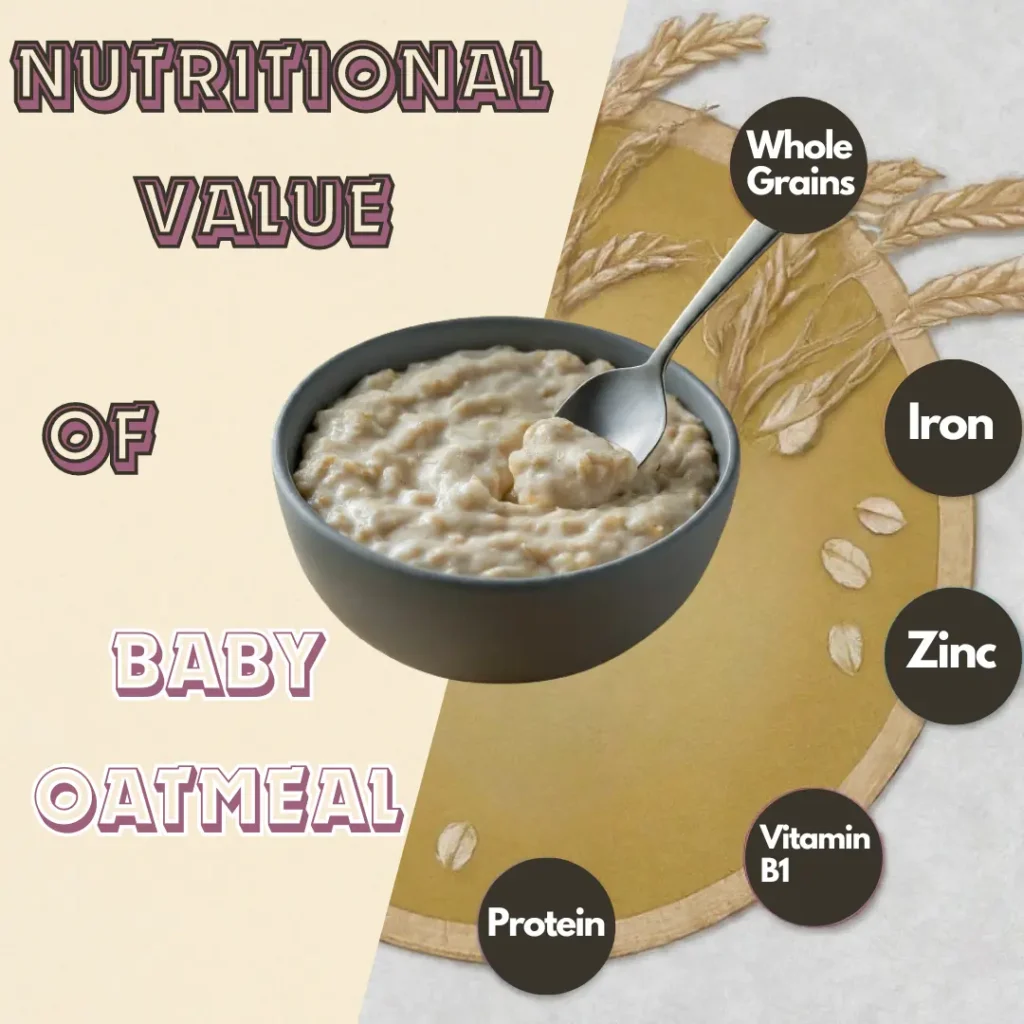As parents, we want to ensure that our little ones receive the best possible nourishment from the moment they start on solid foods. One of the most popular and nutritious options for introducing solids to babies is baby oatmeal. This wholesome and versatile food has been a staple in many households for generations, and for good reason.

Table of Contents
Baby oatmeal is made from finely ground oats, which are then fortified with essential vitamins and minerals to meet the nutritional needs of growing infants. It comes in various forms, including single-grain and multi-grain varieties, as well as organic and non-organic options. With its smooth texture and mild flavor, baby oatmeal is an excellent choice for transitioning from breast milk or formula to solid foods.
The Nutritional Value of Baby Oatmeal

Baby oatmeal is a powerhouse of essential nutrients that are crucial for your little one’s growth and development. Here are some of the key nutritional benefits it offers:
- Whole Grains: Oats are a whole grain, providing complex carbohydrates, fiber, and a range of vitamins and minerals.
- Iron: Baby oatmeal is often fortified with iron, which is essential for healthy blood and brain development.
- Zinc: This mineral supports a healthy immune system and aids in growth and development.
- Vitamin B1 (Thiamin): Plays a vital role in energy metabolism and nerve function.
- Protein: While not as high in protein as some other foods, oats do contribute to your baby’s daily protein needs.
Why Baby Oatmeal is Ideal for Tiny Tummies
Beyond its nutritional value, baby oatmeal has several other advantages that make it an excellent choice for tiny tummies:

- Easily Digestible: The finely ground texture of baby oatmeal makes it easy for little ones to digest, reducing the risk of tummy troubles.
- Hypoallergenic: Oats are generally considered a hypoallergenic food, making them a safe option for babies with food sensitivities or allergies.
- Versatile: Baby oatmeal can be mixed with breast milk, formula, or water, allowing you to adjust the consistency to suit your baby’s preferences.
- Affordable: Compared to many other baby foods, oatmeal is an economical choice, making it an accessible option for families on a budget.
Try these delicious baby oatmeal recipes
1. Baby Oatmeal with Banana and Peanut Butter:
Ingredients:
- ¼ cup Old Fashioned Rolled Oats
- ¾ cup Water
- ¼ Banana (sliced)
- Pinch of Cinnamon
- 1 teaspoon Chia Seeds (or ground flax, optional)
- 2 teaspoons Peanut Butter
- Breastmilk (formula or water to thin, if needed)
- Toppings of choice (fresh berries, more peanut butter, more bananas)
Instructions:
- Cook the oats with water until soft.
- Add sliced banana and a pinch of cinnamon.
- Stir in chia seeds (or ground flax) and peanut butter.
- Adjust consistency with breastmilk or formula.
- Top with your favorite toppings
2. Oatmeal Baby Cereal with Omega Antioxidants:
Ingredients:
- 2 cups Water
- 1 cup Old Fashioned Oats
- ½ teaspoon Hemp Seeds (optional)
- ½ teaspoon Chia Seeds (optional)
Instructions:
- Boil water and add oats.
- Cook until soft and creamy.
- Mix in hemp seeds and chia seeds.
- Serve as a nutritious baby cereal
Tips for Introducing Baby Oatmeal to Your Little One
While baby oatmeal is generally well-tolerated, it’s important to introduce it gradually and watch for any signs of allergies or intolerances. Here are some tips to help make the transition smooth:
- Start with a small amount
- Adjust the consistency
- Offer it at the right temperature
- Introduce one new food at a time
- Be patient
Frequently Asked Questions
Is it better to choose single-grain or multi-grain baby oatmeal?
Both options are nutritious, but single-grain oatmeal may be easier for your baby to digest initially. You can gradually introduce multi-grain varieties as your baby gets older.
Can I make my own baby oatmeal at home?
Absolutely! Simply grind old-fashioned or steel-cut oats into a fine powder using a blender or food processor. Be sure to cook the oatmeal thoroughly and monitor for any potential choking hazards.
When should I introduce baby oatmeal?
Most experts recommend introducing solid foods, including oatmeal, around 6 months of age, but always consult with your pediatrician for personalized advice.
Can I mix baby oatmeal with fruit or vegetable purées?
Yes, combining oatmeal with purées is an excellent way to introduce new flavors and textures to your baby's diet. Just be sure to introduce one new food at a time to watch for any adverse reactions.
How long can I store prepared baby oatmeal?
Cooked oatmeal can be refrigerated for up to 3 days or frozen for up to 3 months. Be sure to discard any leftovers that have been left at room temperature for more than 2 hours.
Summary
Baby oatmeal is an excellent first solid food, providing essential nutrients like iron, zinc, and protein for growth. Made from finely ground, fortified oats, it has a smooth texture ideal for tiny tummies. Baby oatmeal is easily digestible, hypoallergenic, versatile to prepare, and affordable. The post highlights its nutritional value and shares two delicious recipes: oatmeal with banana, peanut butter, and cinnamon; and an omega-antioxidant cereal with hemp and chia seeds. Tips are provided for gradually introducing baby oatmeal, adjusting consistency, avoiding allergies, and being patient during the transition to solids. Overall, baby oatmeal is praised as a nutrient-dense, tummy-friendly food for infants.




